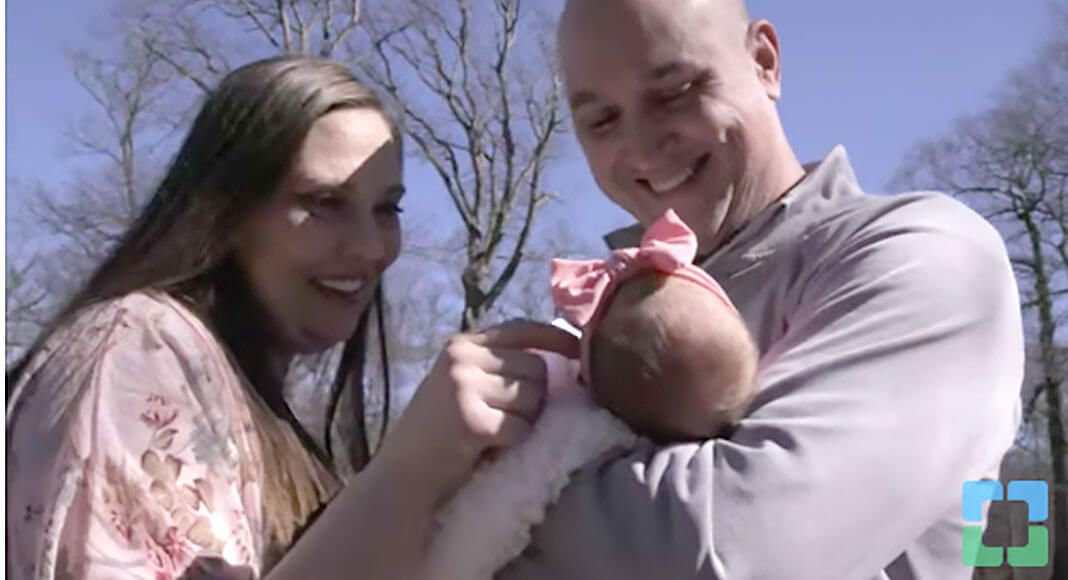
Mega Doctor News
Cleveland Clinic – At sixteen years old, Amanda Gruendell, of Syracuse, Utah, learned she didn’t have a uterus and couldn’t carry a child.
“I always wanted a family. So that was the most devastating thing that I could ever imagine,” she said.
About one in 500 women are affected by uterine factor infertility, a condition making it impossible to have a baby.
Over the years, Gruendell explored adoption, surrogacy and then — a uterus transplant. In 2017 she was accepted into Cleveland Clinic’s research program. At the time, she was single and her mom was her biggest supporter.
“For my mom, that was her dream. She came out to Cleveland with me,” recalls Gruendell. “She was able to be with me for the first part of this journey before she got sick.”
While waiting for a donor uterus to match her rare blood type, Gruendell’s mom was diagnosed with ovarian cancer.
“She was afraid that her diagnosis might get in the way of my transplant, and she didn’t want that,” said Gruendell.
In 2020, Gruendell underwent a 14-hour surgery and received a uterus, just days before her mom passed away.
“I had told her that it was OK. That I was going to be OK. That it just seemed like she was part of all this somehow,” she said.
Since the transplant, Gruendell has gotten married. She and her husband conceived through in vitro fertilization (IVF) and became pregnant on their first embryo transfer.
“It was just like, oh, my goodness,” Gruendell said. “It was kind of hard to believe.”
Gruendell had a healthy pregnancy — the first in the program to go full term.
“The baby grew well without any complications,” said Uma Perni, MD, who specializes in high-risk pregnancies at Cleveland Clinic. “We watched her blood pressure and kidney function very closely due to the immunosuppressant medications that she’s on. But overall, she did great.”
The Gruendell’s baby girl was born via C-section, and they named her Grace – after a teddy bear Amanda’s mother had made for her future grandchild.
“Her legacy gets to live on through all of this, you know, there’s a lot of joy in all that,” explains Gruendell. So, even though it was hard, it was such a beautiful experience. I know that not everybody gets this opportunity. And this is extraordinary. It’s such a happy ending to get this little girl.”
Amanda is one of two women in the program who have opted to keep their donor uterus to try for a second pregnancy.
There have been eight uterus transplants performed at Cleveland Clinic and four healthy babies have been delivered.









